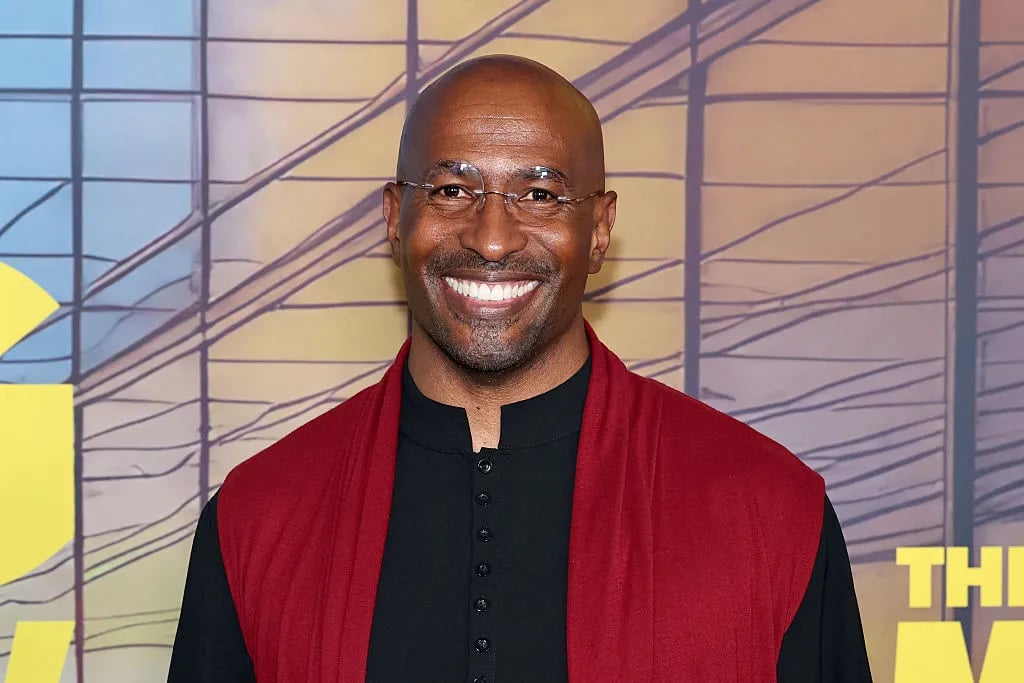Political commentator Van Jones is apologizing for comments he made while appearing on late-night comedian Bill Maher’s show. The remarks by Jones, seeming to make light of civilian deaths in Gaza, drew widespread condemnation and added to ongoing debates about the war, which has killed tens of thousands of people.
Jones makes ‘dead Gaza baby’ comment while defending Israeli war in Gaza
Appearing on Real Time with Bill Maher, Jones and the host discussed Israel’s ongoing war in Gaza, which has killed an estimated 66,000 Palestinians, half of them women and children, according to the Hamas-run Gaza Health Ministry’s statistics, which have been viewed as accurate by the United Nations and other international actors. Discussing what they see as a double standard of criticism against Israel but not other countries involved in human rights abuses, Jones blamed young people’s negative perception of Israel and the war on countries and social media.
“Iran and Qatar have come up with a disinformation campaign that they are running through TikTok and Instagram that is massive,” Jones said. “If you are a young person, you are opening up your phone, and all you see is dead Gaza baby, dead Gaza baby, dead Gaza baby, Diddy, dead Gaza baby, dead Gaza baby,” Jones quipped to laughter and applause from the audience.
Criticisms and an apology over remarks
Jones’ comments drew vocal condemnation, including from news media colleagues. Commentator Briahna Joy Gray posted on X, formerly Twitter, “Turning ‘dead Gaza baby’ into a punchline is such an evil choice that I’m struggling to even engage with the outrageous lie that we only care about Gazan deaths because of an Iranian social media campaign.”
Hala Gorani of NBC News remarked, “I’ve watched hundreds of hours of Gaza videos in the last 2 years, including content filmed by our brave teams inside the strip, and can confirm that the ‘dead Gaza baby’ images are quite real, not the product of a ‘disinformation campaign’ and that there is nothing funny about them.”
Early Sunday morning, Jones posted an apology for the “insensitive and hurtful” comments.
“The suffering of the people of Gaza — especially the children — is not a punch line. I’m deeply sorry it came across that way,” Jones posted to X. “What’s happening to children in Gaza is heartbreaking. As a father, I can’t begin to imagine the pain their parents are enduring, unable to protect their kids from unimaginable harm.” He stated, “I’m praying and working for an immediate end to this war — and for peace and safety for every family caught in its path.”
War in Gaza continues to fuel political divisions in the U.S.
The apology has not ended criticism for Jones. Sen. Chris Van Hollen, D-Md., commented on X, “I’m glad Van Jones apologized for his sick joking about dead kids in Gaza,” adding, “the problem goes deeper: he spread Netanyahu propaganda that the mass killings of civilians in Gaza—including 20K+ kids—is Iranian fake news. It’s not the students and young people who are fooled. It’s Van Jones.”
More broadly, the war in Gaza has divided the entertainment industry. Last month, nearly 4,000 Hollywood figures signed a pledge essentially boycotting Israeli film companies that they view as complicit in the ongoing conflict. The group, including actors such as Emma Stone, Olivia Colman, Ayo Edebiri and Mark Ruffalo, called out companies that are “whitewashing or justifying genocide and apartheid, and/or partnering with the government committing them.” Subsequently, a separate group of 1,200 Hollywood insiders, including actors Mayim Bialik, Debra Messing and Liev Schreiber, issued a letter condemning the boycott, stating that efforts “to censor the very voices trying to find common ground and express their humanity, is wrong, ineffective and a form of collective punishment.”
As President Donald Trump and Israeli Prime Minister Benjamin Netanyahu pressure Hamas to accept a deal to end the conflict, it remains to be seen whether the devastating war will end soon. Until it does, however, the death toll will continue to rise and the sharp political divisions over the conflict will remain.
